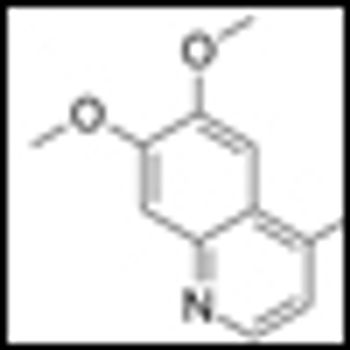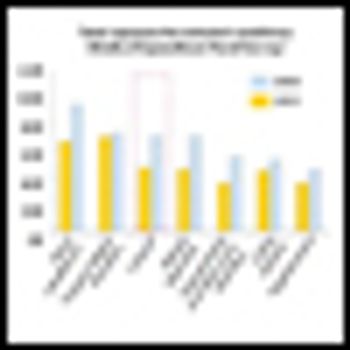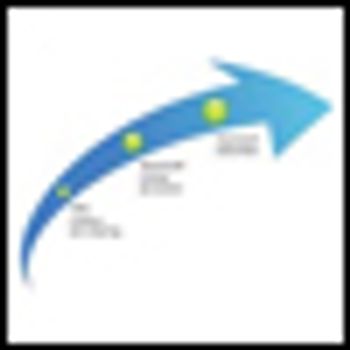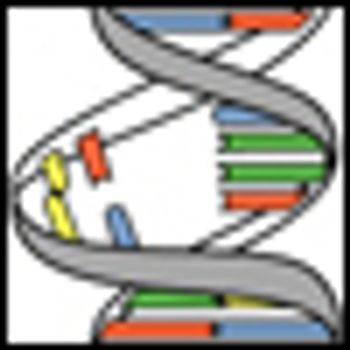
Cabozantinib (cabo), formerly known as XL184, has recently shown unprecedented activity against bone metastases in prostate cancer patients in a phase II trial.

Your AI-Trained Oncology Knowledge Connection!


Cabozantinib (cabo), formerly known as XL184, has recently shown unprecedented activity against bone metastases in prostate cancer patients in a phase II trial.

Janet Woodcock, the Director of the Center for Drug Evaluation and Research (CDER) at the FDA and her colleagues recently discussed the development of the U.S. BioSimilars Program in a perspective in the NEJM



The review of surgical management of neuroendocrine tumors (NETs) of the gastrointestinal tract, authored by Huang, Poultsides, and Norton, is both comprehensive and accessible for readers of all backgrounds.

Tumors of neuroendocrine origin arising from the pancreas, luminal gastrointestinal tract, and other tissues differ greatly in their malignant potential.

On many occasions, I have been asked by colleagues or patients, “How do you do what you do?” when the topic of taking care of patients with a terminal illness comes up. So, is it possible to write about the topic of humor in oncology without seeming cynical and uncaring? Obviously I think it is.

Cancer service leaders must create the vision, embrace the change agenda, and drive the roadmap in order to make the strategic and clinical changeover to value.


Mangosteen is an evergreen tree native to Southeast Asian countries, including India, Myanmar, Malaysia, Philippines, Sri Lanka, and Thailand. Its reddish to dark purple fruit, with white juicy edible pulp, is considered one of the best tasting tropical fruits. Mangosteen has a long history of medicinal use to treat skin infections, wounds, and dysentery; in ayurveda, it is used for inflammation, diarrhea, and cholera.


With the continuing increase in the utilization of smartphone applications (apps), the Food and Drug Administration (FDA) has decided to jump on the bandwagon. The goal for the FDA is to provide accurate and up to date information for consumers and patients, partly to address the increasing number of ‘health’ applications that may not always be accurate or from reliable sources.

Using in vitro techniques and mouse models, scientists at the University of Chicago Department of Medicine and colleagues have demonstrated that downregulation of PTEN in epidermal keratinocytes predisposes skin to ultraviolet B (UVB)-induced tumorigenesis.

iKnowMed Electronic Health Record (EHR) System has received the federal government’s approval via a Complete EHR Certification. The 6.3 version of the software is owned by McKesson Specialty Care Solutions and US Oncology, and was developed by US Oncology.

In the majority of cases, hepatocellular carcinoma develops in the setting of cirrhosis. Treatment with curative intent is possible in only 20% to 25% of cases and consists of resection or liver transplantation.

There has been dramatic progress in the management of acute promyelocytic leukemia during the past three decades. Important insights into the pathogenesis of the disease have come to light and effective treatment has been developed.

In this article, we review the data surrounding the use of chemotherapy (CT) and chemoradiotherapy (CRT) in patients with resectable pancreatic cancer.

Healthcare providers are long overdue for some in-depth help when it comes to talking with patients and families during times of personal tragedy.

In 2003, the Institute of Medicine (IOM) issued a report outlining key capabilities of an electronic health record.[1]

In their article “Liver Transplantation for the Treatment of Hepatocellular Carcinoma," Drs. Hanish and Knechtle provide a cogent review of many of the issues surrounding the management of hepatocellular carcinoma (HCC) in patients with cirrhosis.

Hepatocellular carcinoma (HCC) remains a formidable challenge in the United States due to its increasing incidence, its advanced-stage presentation, and its association with chronic liver disease.[1-3]

Acupuncture is a therapeutic modality in Traditional Chinese Medicine (TCM), developed over the millennia. Treatment involves the placement of needles at selected points on the body, followed by manipulation with physical forces, heat, or, in modern times, electrical stimuli.

Bellury LM, Ellington L, Beck SL, et al: Elderly cancer survivorship: An integrative review and conceptual framework. Eur J Oncol Nurs 15(3):233–242, 2011.Derby S: Assessment and management of delirium in the older adult with cancer. Clin J Oncol Nurs 15(3):247–250, 2011.Holtslander LF, Bally JM, Steeves ML: Walking a fine line: An exploration of the experience of finding balance for older persons bereaved after caregiving for a spouse with advanced cancer. Eur J Oncol Nurs 15(3):254–259, 2011. Kahana B, Kahana E, Deimling G, et al: Determinants of altered life perspectives among older-adult long term cancer survivors. Cancer Nurs 34(3):209–218, 2011. Pieters HC, Heilemann MV, Grant M, et al: Older women's reflections on accessing care across their breast cancer trajectory: Navigating beyond the triple barriers. Oncol Nurs Forum 38(2):175–184, 2011. Swinney JE, Dobal MT: Older African American women's beliefs, attitudes, and behaviors about breast cancer. Res Gerontol Nurs 4(1): 9–18, 2011. Van Cleave JH, Egleston BL, McCorkle R: Factors affecting recovery of functional status in older adults after cancer surgery. J Am Geriatr Soc 59(1):34–43, 2011.


Scientists at the University of California have taken patient tumor samples and compared them to matched normal tissue samples for two cancer types to map the evolution of mutations in cancer progression.

Compared with almost any other career, the path to becoming a physician requires a substantial upfront commitment of time, effort and, of course, cost. For oncology specifically, an additional ten years of training after college are required before seeing your first patient independently. In a sense, the day you finish your fellowship, you are already fully “committed.”

In a recent perspective in the New England Journal of Medicine, Richard E. Rieselbach, M.D and Arthur L. Kellerman, MD, MPH have written a proposal for how to save the community health centers (CHCs) that treat the majority of Medicaid patients from cost-cutting actions by states that need to cut their budgets.


Petri Dish is a blog written and produced by the external relations and communications staff at Fred Hutchinson Cancer Research Center. The blog delivers science and biomedical information to the world by highlighting and illuminating the scientific research at the Hutchinson Center. Reprinted with permission.

Researchers measured the rate of bankruptcy after a first cancer diagnosis and identified factors that increased bankruptcy risk among people with common cancers.